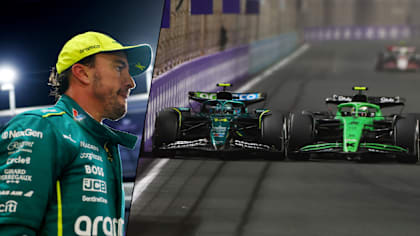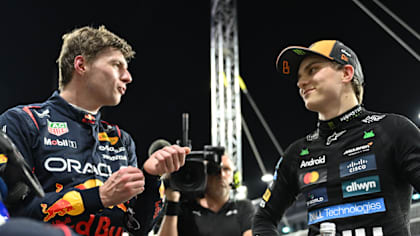)
Feature
EXCLUSIVE: ‘There can only be one goal’ – Andreas Seidl on Audi’s ‘all-in’ targets and their driver market strategy

Share
)
Speaking exclusively in his first English language interview since taking the job to lead Audi into Formula 1, Andreas Seidl opens up on a wide-range of topics from the level of investment required to strengthen the team, the challenges the operation faces now, Audi’s targets – and, of course, their strategy in the driver market.
Andreas Seidl has kept a low profile since he joined Sauber – which will become Audi – as CEO more than 17 months ago. The German engineer turned senior leader wasn’t being shy. It was a deliberate ploy as the team were in an awkward position.
Yes, they would become Audi’s first full works Formula 1 squad in 2026, but until then, they would operate first as Alfa Romeo (the Italian automotive brand), and now as Stake F1 Team Kick Sauber, all while using Power Units from long-time Italian partner Ferrari.
And so Seidl stayed in the shadows. He came to a handful of races but stayed out of the public eye. His focus was back at base, assessing the Hinwil operation – where the chassis is built and the future works team will be run from – and setting up the structures required (which includes the new Power Unit facility in Neuberg) while Alessandro Alunni Bravi runs the team on a day-to-day basis and is the spokesperson for the F1 squad.
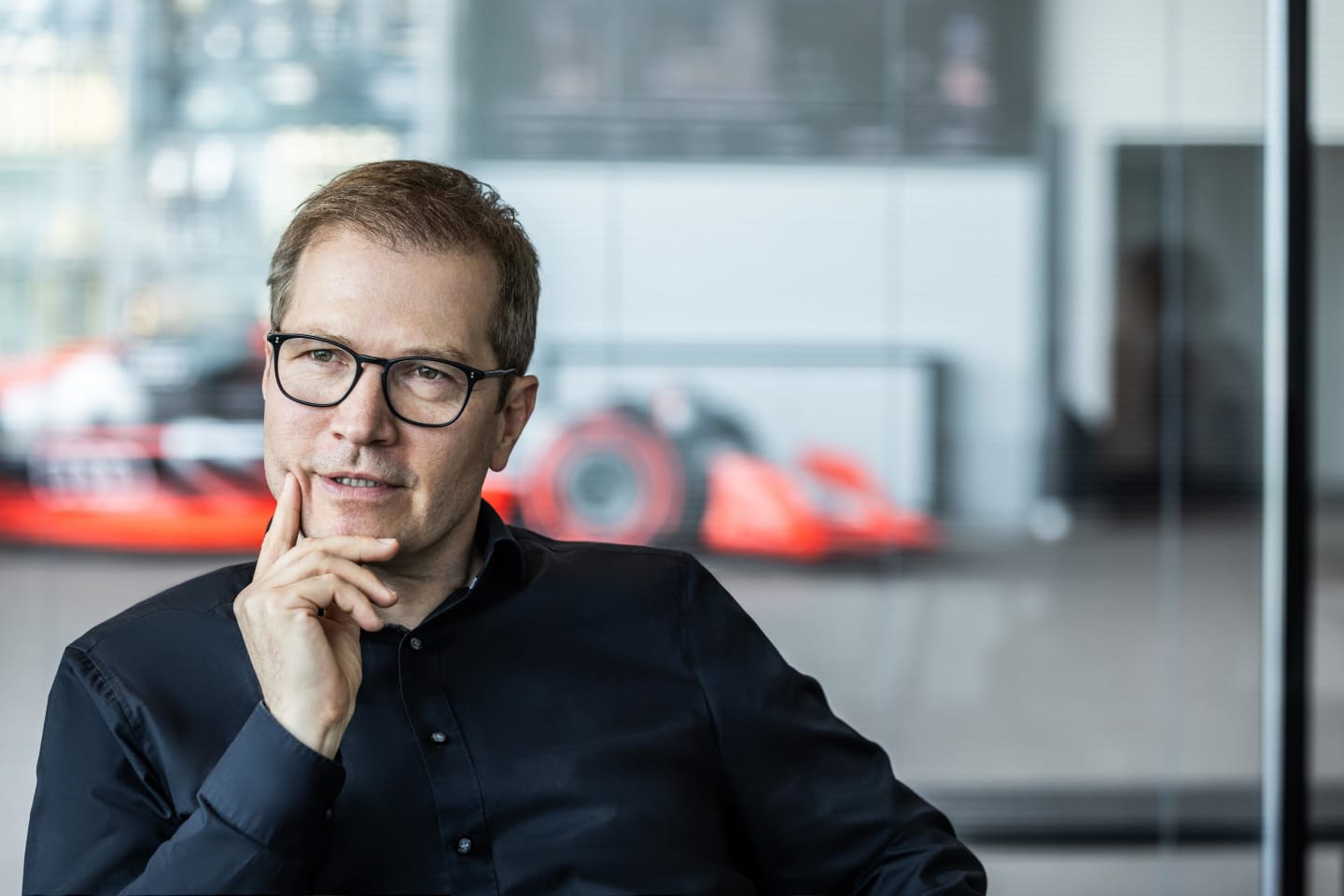
Andreas Seidl joined as CEO more than 17 months ago to lead Audi into Formula 1
But things are starting to ramp up in a big way at Audi, the German manufacturer expanding its commitment to F1 by taking a 100% stake in the Swiss team. In effect, Audi are going all-in with Formula 1, highlighting their commitment to becoming a force to be reckoned straight out of the blocks.
As a result, Seidl has decided to break his silence. We caught up ahead of this weekend’s Emilia Romagna Grand Prix. As ever, the German was eloquent, expansive and enthusiastic when we chatted. It’s clear he’s loving getting his teeth into such a substantive project and excited rather than stressed by the enormity of the challenge.
ANALYSIS: Why Audi’s Sauber takeover is a serious statement of intent from the German car giant
“We are on track, both in Neuburg on the Power Unit side and also for the plans we have in Hinwil,” he says. “If I look at the progress we are making on the development side, hitting all the milestones we have set ourselves, I feel quite confident we will be ready in 2026.
“On the team side in Sauber, I have taken the last couple of months to work out in detail with the team where do we see the deficits we have here compared to the top teams in F1.
“The first changes have already been made. With our recent announcement of the 100% takeover of Sauber by Audi, we simply can accelerate now this transformation – from a private F1 team to a full works team. The mission here is now until 2026 to put the plan we have worked out in place as quickly as possible and create momentum, with the clear objective, to be as competitive as possible from 2026 onwards.”
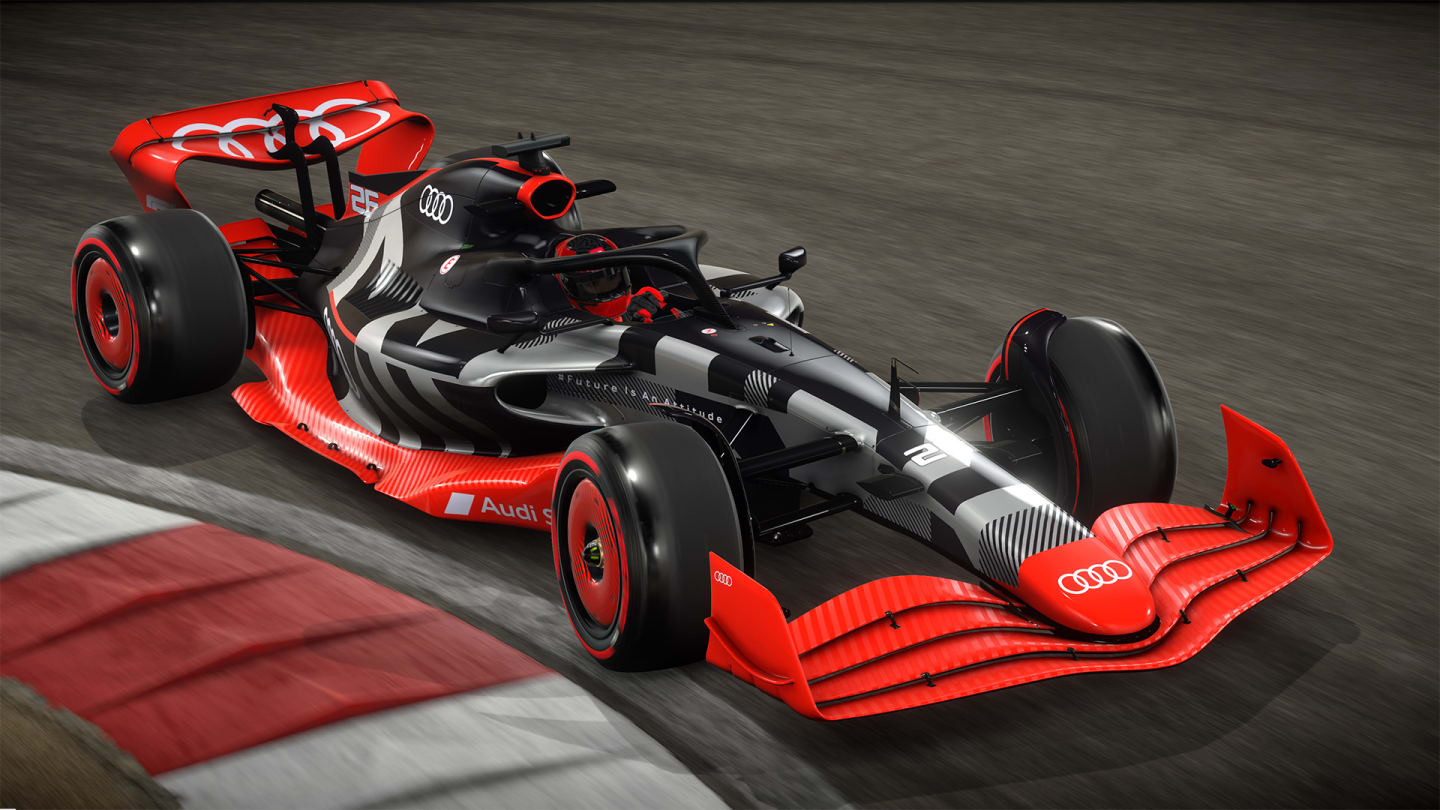
The current Kick Sauber team will become Audi’s first full works Formula 1 squad in 2026
The job that lies ahead…
On paper, Sauber are in a difficult spot right now. They are rock bottom of the constructors’ championship, having not scored a single point.
Hinwil has some real strengths, including their simulator and wind tunnel, but while former owner Finn Rausing did a noteworthy job funding the team over the last few years to help it slowly grow, he couldn’t pump in the huge sums required to undo the decade or so of consistent underinvestment in the team that came after BMW left (the German automotive maker pumped huge resource into the team during their five-year partnership before they left at the end of 2010).
“I’m grateful to the foundation we have here in Hinwil, both in terms of the highly skilled and motivated team, but also the infrastructure that we have in place,” says Seidl.
“It’s the reason why Audi decided to enter F1 with Sauber. We have to thank one person who invested into this project for many years – Finn Rausing. With all the support Finn gave to the team and investments he did, he’s put in a good foundation we have to embark on now.”
Sauber/Audi need to grow significantly to be on par with the big teams. Right now, they have around 600 people. That number needs to swell to 900 to rival the best on the grid right now.
While it is a huge task to bring in so many people and convince them this is the right project, while also ensuring they work cohesively, Seidl sees this as a benefit rather than a curse. Rather than having to cut staff to meet the budget cap, he can strengthen in the areas that need it.
We certainly do not underestimate the task that is ahead of us as a team and we know that it will be a race against time to be as ready as possible in 2026.
Andreas Seidl
“To get to the same firepower as the big teams, we will use this opportunity to bring in new capabilities to help close the gap we have to the big teams in F1,” he says. “The second big topic we have to tackle is the infrastructure. It is clear the site has to grow in terms of pure size in order to have space for all the additional people we have onboard in the future with a strong focus as well on updating the working environment for our people to enjoy working and collaborating within the team and be ready to go the extra mile which is required for the journey we are in.
“We need to update all our technical infrastructure, which means putting a lot of investment into our R&D capabilities here at Hinwil but also update our production facilities in order to get to the level required to fight the top teams. We want to significantly ramp up our in-house production capabilities to increase the speed of delivering parts and upgrades to the track and be as efficient as possible under the cost cap at the same time.”
He adds: “We certainly do not underestimate the task that is ahead of us as a team and we know that it will be a race against time to be as ready as possible in 2026.
“It is important to mention that the transformation will not only be about growth. It would be naïve to believe that by simply having more financial resources available and becoming a bigger team we automatically fight with the top teams.
)
It's been a difficult campaign so far in 2024 for the Sauber team
“The transformation will also require a significant amount of change within the team, which needs to be implemented. Change in terms of our ways of working, our organisational setup, our culture. Change that will not always be comfortable and also be painful for one or the other step we have to take as a team.
“But we are all absolutely clear and committed within the team that this will be absolutely necessary and that we have a unique and once-in-a-lifetime opportunity here to build a competitive works team, which can fight for podiums, victories or championships in the future.”
IT'S RACE WEEK: 5 storylines we're excited about ahead of the 2024 Emilia Romagna Grand Prix
The challenges facing Sauber
While Sauber are bottom of the championship in F1 right now, Seidl doesn’t think it is as bad as it looks for his team. Yes, they haven’t scored this year and have a flurry of pit stop, quality control and reliability issues – but the car has shown inherent pace at times.
Such is the tightness of the field right now – 0.2-0.3s is usually the difference between making it into Q3 and exiting in Q1 – if Sauber can tidy everything up operationally, suddenly it wouldn’t look so bad.
Equally, growing pains are common in F1.
Aston Martin went through – and are still going through – it when owner Lawrence Stroll rebranded the Racing Point team and pumped hundreds of millions of pounds into the operation. Mercedes and Red Bull did, too, when they took over Brawn GP and Jaguar respectively.
 2024Constructor's Championship Standings after Miami
2024Constructor's Championship Standings after Miami
| Position | Team Name | Points |
|---|---|---|
| 1 | Red Bull Racing | 239 |
| 2 | Ferrari | 187 |
| 3 | McLaren | 124 |
| 4 | Mercedes | 64 |
| 5 | Aston Martin | 42 |
| 6 | RB | 19 |
| 7 | Haas | 7 |
| 8 | Alpine | 1 |
| 9 | Williams | 0 |
| 10 | Kick Sauber | 0 |
This is why Seidl is confident that with the “right team development and expansion” – as well as finally pushing up to the cost cap limit for the first time since it was introduced into the sport, his team can “quickly make strides towards the top-five teams”.
Seidl has form in getting the job done. He was key in turning Porsche into a dominant force in the World Endurance Championship and he played an important role alongside CEO Zak Brown and the leadership team in rebuilding McLaren – the German instigating a series of organisational changes and triggering the investment in key infrastructure projects that moved McLaren into a consistent top-five team while giving the building blocks to make them a consistent top-three/four team.
The current project shares similarities to his time at McLaren in that both teams had suffered a recent period of little to no investment. At McLaren, the team moved to update pretty much everything in terms of infrastructure. That’s what he’s doing at Sauber now.
Given Seidl was pleased with how things improved while he was at McLaren, you can understand why he is so confident it will work at Audi – especially as this is a full works project, which allows them to produce everything in house and harmoniously marry the Power Unit and chassis together (McLaren were and are still taking a customer Mercedes Power Unit).
When the team has to grow as substantially as Audi has to, there is an acceptance all the way up to board level that it will take time to get everything in place. Taking on 300 people is not the work of a moment, not least because of the length of gardening leave periods these days.
Audi are understood to have already signed a lot of deals to bring on people, both from inside and outside F1. Some have already started, such as Technical Director James Key late last year – others have finally been able to start – such as Lee Stevenson, who left Red Bull after 18 years to join the Audi project – but many are not able to start for at least a year.
More will be signed, too, with Audi set to go on a recruitment drive – the first significant batch of job advertisements to go out this week ahead of Imola.
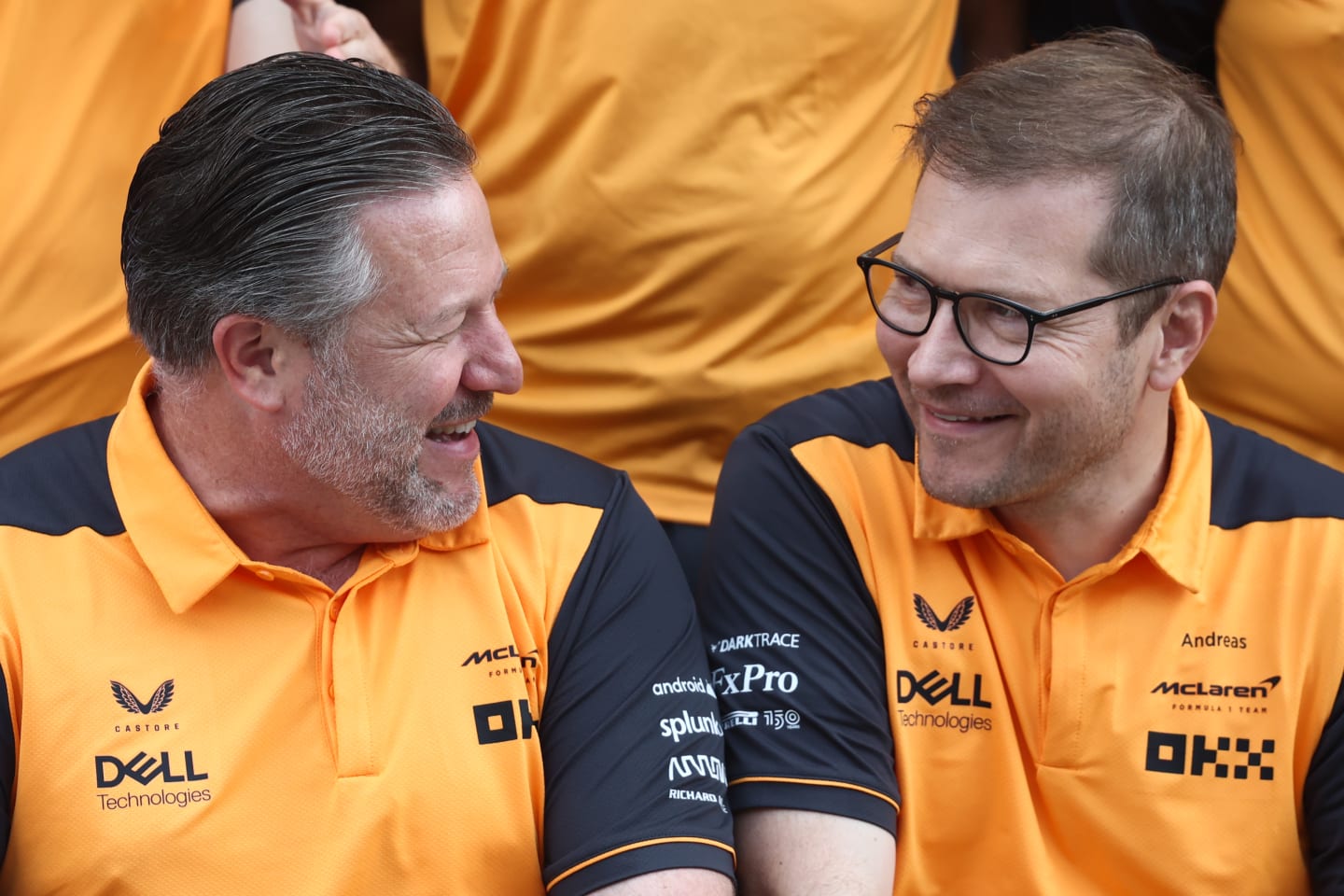
Seidl played an important role during his time at McLaren, alongside CEO Zak Brown and the leadership team, in rebuilding the squad
The availability of Adrian Newey…
It would be remiss for me not to ask Seidl if he has any interest in technical genius Adrian Newey, who is on the market after deciding to leave Red Bull after nearly two decades. But it seems Seidl’s strategy isn’t to chase big names…
“For sure every team in the paddock must be interested in having an icon like Adrian Newey on board, with everything he has achieved in the past,” he says. “What is important for us is to create a strong team, with a strong ethos and strong team spirit that is willing to go on this journey together, to tackle the challenges we have ahead of us, and want to be part of this project, which is unique, which has an attraction to many people.
“Audi will enter F1, this will only happen once. People can help shape this project, knowing Audi will go all in, knowing that everything will be available that is required to be able to fight at the front at F1 – this approach helps us get people onboard, not just from F1, but from other motorsport categories, from other industries or universities or schools – as it’s important not to just focus on F1 personnel.
“I’m also keen to get people from outside F1 onboard, to make sure you have a diverse workforce here. You want to get the basics right but you also want people who think outside the box in order to create an advantage at some point compared to the establishment in F1.”
He adds: “The focus of our hiring campaign is not on names, it’s about finding the right people for the right positions who help us increase competitiveness and help us move forward.”
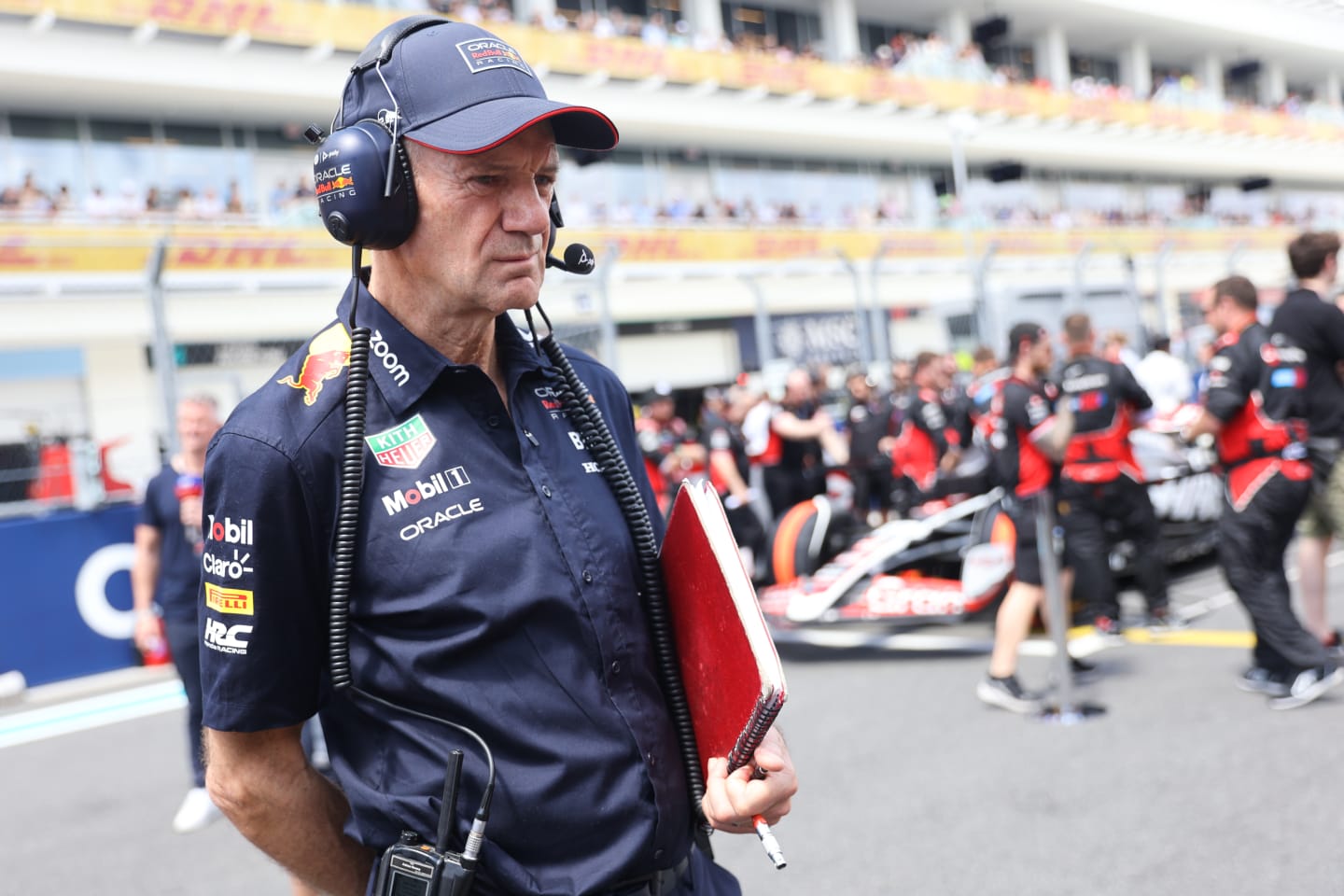
Adrian Newey has decided to leave Red Bull after nearly two decades with the team
The driver market strategy
Audi moved reasonably early in the driver market, announcing the signing of Nico Hulkenberg on a multi-year deal in the build-up to the Miami Grand Prix. Why Hulkenberg and why so early?
“It is his consistently convincing speed,” says Seidl. “For sure Nico with all his experience and his personality brings a lot to the table for us as the future Audi works team – on track and off track.
READ MORE: Zhou explains his focus as he hopes to enjoy a 'long career' in F1
“And he will be a very important building block in this transformation we are in as a team, but ultimately all that matters is his speed. It is simply impressive how he consistently pulls it off in qualifying and races at each single race weekend. That’s why we wanted to secure him and had no reason to wait any longer.
“Nico as well was very keen to join our exciting project and be part of the Audi journey entering F1.”
For sure Nico with all his experience and his personality brings a lot to the table for us as the future Audi works team - on track and off track.
Andreas Seidl
That leaves one seat left for 2025 with three-time race winner Carlos Sainz understood to be Audi’s preferred option. Seidl knows Sainz’s capabilities all too well, having raced him at McLaren for two years, and given the German’s strategy is to sign drivers who are currently performing at a high level, it is no surprise the Spaniard is proving such a draw for him.
However, the Spaniard is in no rush to make a call, given there is the potential of a seat at Red Bull and Mercedes still on the table.
So what are Audi doing? “We are talking with Valtteri [Bottas] and Zhou [Guanyu] and keep monitoring their performance,” he says. “We are grateful for what they have done and are still doing for Kick Sauber. At the same time, we are out in the market, to have all options ready once we want to make a decision later in the year.”
He adds: “The driver market is difficult to predict at the moment. Having Nico nailed down, there is no specific rush to fix the second seat. We prefer to monitoring the performance of our drivers and the others we are looking – and then make the best decision.”
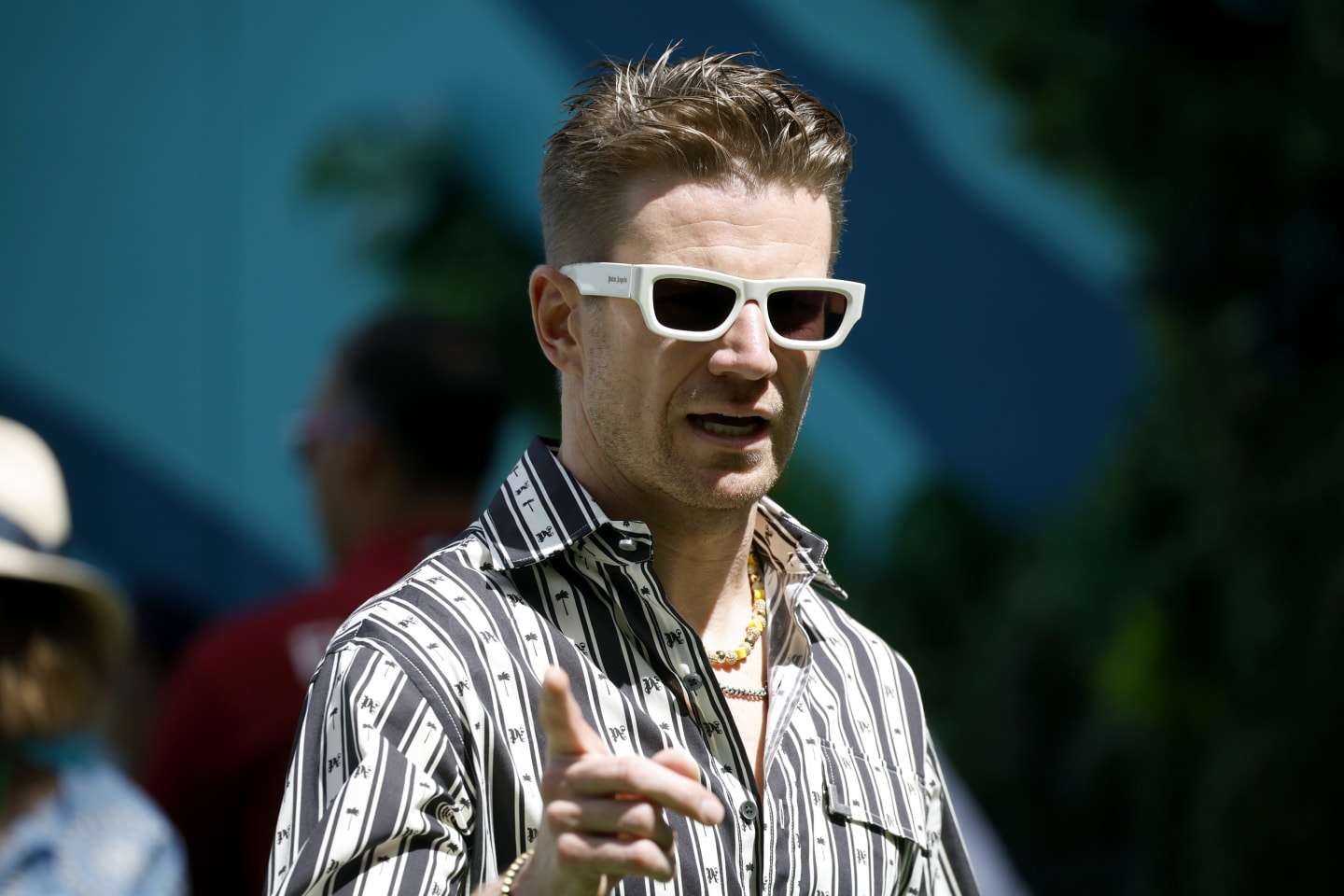
Nico Hulkenberg will be part of the Audi project after signing a multi-year deal from 2025
The targets set by Audi
As our chat comes to an end, the subject turns to goals. Given the work that needs to be done – and the competitive nature of Formula 1 right now, what are Audi’s targets when they make their debut in 2026?
“It’s clear that if a brand like Audi is entering F1 – there can only be one goal, which is to ultimately fight for race wins and championships in the future,” he says. “We are going ‘all-in’.
“This means we will have everything available that is required to fight in the battle to be the best in the sport in the future. We can tackle this with confidence, but it’s now down to us to use this support and commitment and resource from Audi to make it happen.”
He adds: “What would a successful 2026 look like for me? To have a competitive and reliable power unit at the start of the new regulation cycle and to surprise with a competitive car straight from the beginning which means in the end, we have an overall competitive package.
“We started early in Neuburg with the development of the power unit for these new regulations, Sauber has shown in the past, if you look back at 2022 when it was the last time developing a brand new car under new chassis regulations, even as a small team with limited resources, it can do a very strong job.
“It’s a great opportunity we have in 2026, as a newcomer on the power unit side and new works team on the team side, that these new regulations can help us shortcut some of the deficits we have right now and give us a good head start into the Audi era.”
YOU MIGHT ALSO LIKE
News Bayer admits Lawson left ‘sad and puzzled' by Red Bull seat swap as he predicts New Zealand driver 'will be back and he will be quick'
News Alonso says Aston Martin ‘need to get used to’ not scoring in 2025 as he reflects on dramatic near-miss with protégé Bortoleto in Jeddah
News 'That's what you need to fight for a championship' – Verstappen reveals key Piastri trait that could help him in title battle
News F1: The Academy documentary series to launch on Netflix in May


